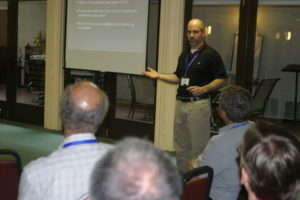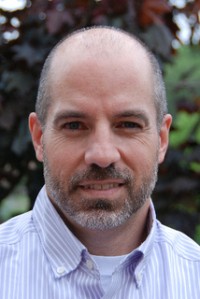Mennonite Health Journal
Articles on the intersection of faith and health
Integrative Medicine: It’s just good medicine
John Wenger
from Mennonite Health Journal, Volume 14, No. 2, July 2012
In 2001, the Institute of Medicine stated, “The US healthcare system is in need of a change. Healthcare today harms too frequently and fails to deliver its potential benefits routinely. As medical science and technology have advanced at a rapid pace, the healthcare delivery system has floundered. Between the care we have and the care we could have lies not just a gap, but a wide chasm.” Dr. Andrew Weil writes, “Imagine a world in which medicine was oriented toward healing rather than disease, where doctors believed in the natural healing capacity of human beings, and emphasized prevention above treatment.”
These statements should cause each of us to pause and take notice of our current state of affairs in healthcare:
- Heart disease is responsible for nearly 30% of global deaths.
- Well over 100,000 Americans die each year from adverse effects of pharmaceutical medications.
- Evidence shows that up to 80% of cardiovascular disease and up to 33% of cancers can be prevented by healthy lifestyle and diet.
- Americans spend more per capita on healthcare than any other people in the world, yet have some of the worst outcomes among developed nations.
The picture can seem quite grim and the future is uncertain. However, despite these realities, healthcare remains an exciting profession with growing and innovative opportunities to provide better care to our communities and to improve the health of our nation.
Our current healthcare system is geared toward intervention in established disease. This remains the foundation of medical training to this day. Unfortunately, people then tend to live with an expectation that medicine will fix the consequences of lifestyle. I would hold that our long-term goal must be to shift our healthcare efforts from disease intervention to disease prevention and health promotion. Many healthcare providers as well as people in society are developing a greater awareness and desire for this premise to be implemented into our system of care.
 We are getting closer to that “tipping point” where alternatives and new approaches to healthcare are desperately needed. Yet, as Einstein reminds us, “To solve significant problems that we face requires a different level of thinking than we possessed at the time they were created.”
We are getting closer to that “tipping point” where alternatives and new approaches to healthcare are desperately needed. Yet, as Einstein reminds us, “To solve significant problems that we face requires a different level of thinking than we possessed at the time they were created.”
An exciting and rapidly growing movement in healthcare is known as integrative medicine. Integrative medicine is a healing-oriented medicine that takes account of the whole person (body, mind, and spirit), including all aspects of lifestyle. It reaffirms the importance of the relationship between practitioner and patient, focuses on the whole person, is informed by evidence, and makes use of all appropriate therapeutic approaches, healthcare professionals, and disciplines to achieve optimal health and healing. Integrative medicine emphasizes disease prevention and adds many less toxic and more cost-effective means to address acute and chronic conditions.
Let us take a look at the defining principles of integrative medicine:
First, the patient and practitioner are partners in the healing process. That may sound obvious, yet I encounter so many patients that, when asked why they are taking a certain medication or why a certain test was ordered, state they do not know because their doctor never explained it. That directive style of care does not tend to facilitate a good relationship of trust and partnership between practitioner and patient.
All factors that influence health, wellness, and disease are taken into consideration including mind, spirit, and community, as well as the body. As the World Health Organization stated in 1948, good health can be defined as “…a state of complete physical, social and mental well-being, and not merely the absence of disease or infirmity.” We are more than just physical beings and there are many facets to our health.
Appropriate use of both conventional and alternative methods facilitates the body’s innate healing response. It is important to note that integrative medicine is not “alternative medicine.” The term “alternative medicine” is often used to convey the idea of “in place of” conventional medicine. Integrative medicine uses conventional medicine fully alongside complementary and alternative therapies that have evidence of efficacy and safety.
Effective interventions that are natural and less invasive should be used whenever possible. A great example is the patient who presented to me with symptoms of anxiety. The patient was open to learning a breathing technique that is effective at decreasing the adrenergic surge associated with anxiety and brings improved balance between the sympathetic and parasympathetic parts of the nervous system. It worked very well for her and we were able to avoid an often used conventional medication that has side effects of sedation and addiction.
Integrative medicine neither rejects conventional medicine nor accepts alternative therapies uncritically. I believe that too many individuals in our healthcare system are closed-minded cynics. I would suggest that a better approach for us is to be open-minded skeptics. I also believe that our method of evaluation, the classic “randomized controlled trial,” should be used more on a sliding scale approach. In other words, if an intervention has potential for great harm or cost, greater amounts of study and testing should be done compared to an intervention that has very little or no cost or harm. Good medicine is based in good science. It is inquiry-driven and open to new paradigms.
Alongside the concept of treatment, the broader concepts of health promotion and prevention of illness are paramount. Again, our long-term goal must be to shift our healthcare efforts from disease intervention to disease prevention and health promotion.
Finally, practitioners of integrative medicine should exemplify its principles and commit themselves to self-exploration and self-development. We as health care providers need to be on this journey, fully engaging ourselves towards better health and wellness as we interact with members of our communities.
During my two year fellowship at the Arizona Center for Integrative Medicine, I have learned a great deal about nutritional health, botanicals and dietary supplements, mind-body medicine, and many complementary and alternative practices. I have studied integrative approaches to women’s and men’s health, pediatrics, mental health, gastrointestinal disorders, cardiovascular disease, respiratory illnesses, cancer, and much more. It has expanded the scope of my practice and enabled me to provide a wider array of interventions as I bring health and healing to the patients I serve.
For some of us, it is challenging to think beyond our understanding of what is known or established. And yet, when we are pushed to rebuild our perceptions of what is possible, they are often bigger…expanded! As we deal with the realities of our current healthcare system and the type of care being delivered, I share this opportunity to explore integrative medicine. Hopefully, one day, it will simply be known as good medicine.
About the author
 John Wenger, D.O., is a family physician in Harrisonburg, Virginia. He is married to Sandy Eberly Wenger; they have 4 children, 2 sons-in-law, and one grandson. John specializes in practicing integrative medicine and is passionate about paving the way to a new future in healthcare. He was a workshop presenter at the first MHF Retreat (Annual Gathering) at Laurelville Mennonite Church Center.
John Wenger, D.O., is a family physician in Harrisonburg, Virginia. He is married to Sandy Eberly Wenger; they have 4 children, 2 sons-in-law, and one grandson. John specializes in practicing integrative medicine and is passionate about paving the way to a new future in healthcare. He was a workshop presenter at the first MHF Retreat (Annual Gathering) at Laurelville Mennonite Church Center.
